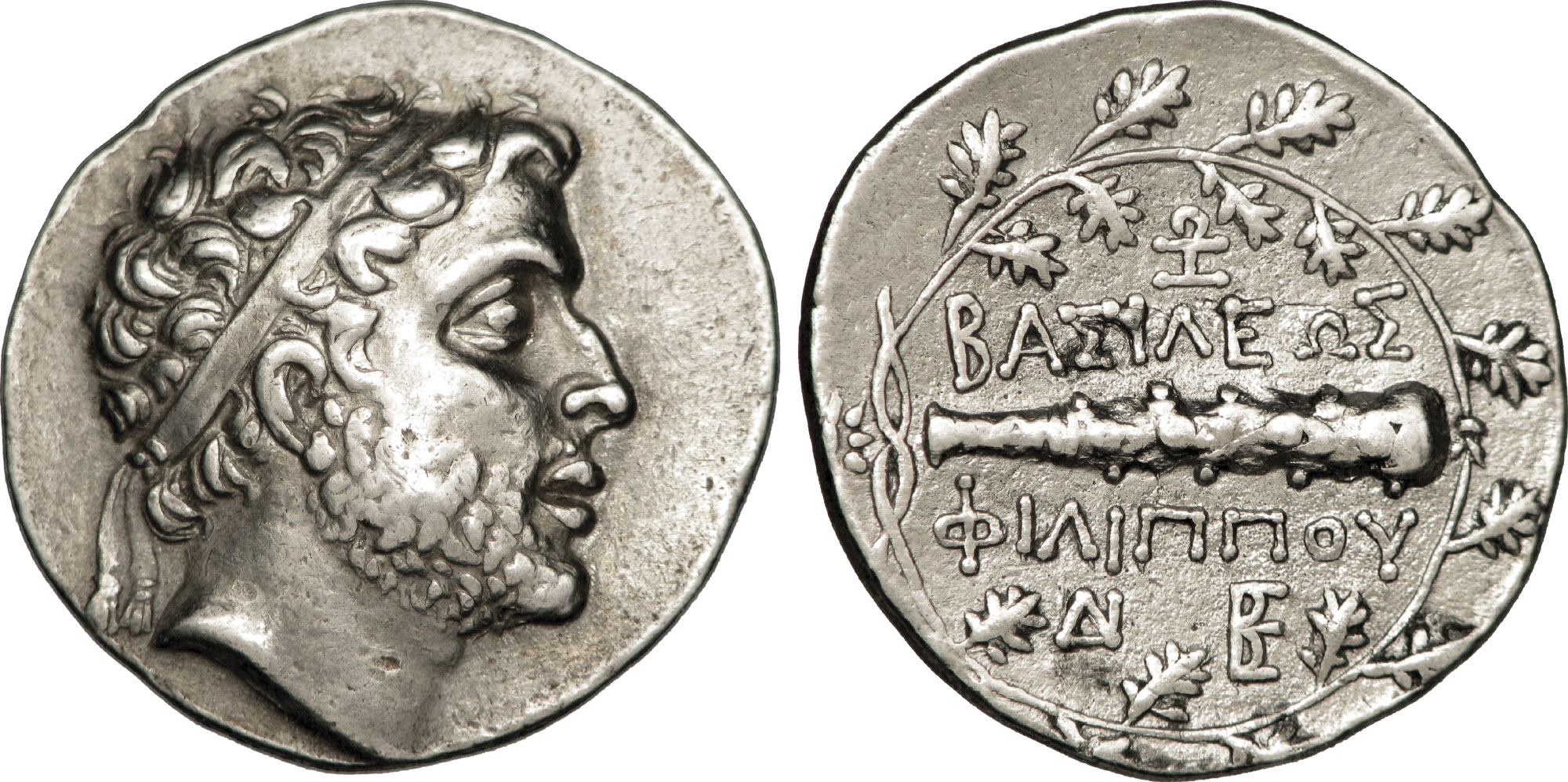Philip V was born in 238 and died 179 BC. From 221 BC, he was the king of Macedonia. His father was Demetrius II Aetolicus.
In 220, the Macedonians were involved in the Social War in Greece (that lasted from 220 to 217 BC), together with the Hellenic League against the Aetolians, Spartans, and Elis. In the winter of 218, at the head of a 15,000-strong army, Philip V invaded the Peloponnese and conducted a number of successful campaigns against the Aetolians, Elis, and Sparta. In the summer of the same year, the Macedonians landed in Aetolia and plundered the center of the Aetolian Union – the town of Ferm.


The First Macedonian War
In 217 BC, Philip V received news of the defeat of the Romans against Hannibal near Lake Trasimeno. He immediately made plans with this information, he wanted to intervene in the struggle against the Romans for the Illyrian possessions. In 216, the Macedonian fleet attempted to capture Apollonia. The following year, Philip V concluded an anti-Roman treaty with Hannibal. In the summer of 214, a Macedonian fleet of 120 ships returned to the coast of Illyria. The city of Oric was captured, and Apollonia was taken under siege. The Roman praetor Mark Valery Levin forced Philip V to flee. These events marked the beginning of the First Macedonian War, in which the Aetolian Alliance, Pergamum, Sparta, and Elis fought against Philip V.
In 213, Philip V’s troops successfully operated in Illyria in 209. He came to the aid of the Achaeans in the Peloponnese, and in 207, conducted a campaign to Aetolia and again defeated his enemies. Abandoned by the Romans, the Aetolians could not resist for long and in 205, concluded a peace treaty. Soon the Romans followed their example.
The Cretan War from 205 to 200 BC
In 202, Philip V concluded a treaty with Antiochus III. The treaty’s purpose was to partition Egyptian possessions in the Aegean Sea. The Rhodians declared war on him and shortly they were joined by the Pergamon King. In 201, the Macedonians defeated the Allied ships in the battle of the island of Lada. Philip broke into Pergamum and devastated their land.


Second Macedonian War
Leaving a part of his army in Caria, Philip V, in 200, returned to Macedonia. Here he was waiting for the Romans, who had declared war on him (Romans defeated Hannibal at the battle of Zama 203, ending the Punic War, that left Rome with more free troops). In September 199, the Aetolian Alliance joined the anti-Macedonian coalition. Consul Titus Flamininus broke through the Macedonian defenses on the Aoi River, and entered Thessaly, creating a great problem to the Macedonians. In October, the Achaean League had gone to the side of the Romans. Philip V was alone with no true Allies. In June, 197 BC he was defeated at the Battle of Cynoscephalae and asked the Romans for peace (This battle showed the superiority of the Roman legion formation). The Roman Senate granted his request. Under the terms of the peace treaty, Philip V lost possessions in Greece, Caria and in the straits zone; he had to surrender his fleet and pay a ransom.
Union with Rome against the Seleucid Empire
In 191, Philip V assisted the Romans in their war with Antiochus III the Seleucid Emperor. In 185, he undertook a campaign against the Odrisses and captured Philippopolis in Thrace. During the preparation for the campaign in 179, Philip V died.
The personality of Philip V the ruler of Macedon
In ancient Greek and Roman literature (Polybius, Titus Livius), Philip V is portrayed as a cruel and treacherous man who hated all Greeks, to the end of his life, with great hatred, cruelty, and suspicion. This assessment is suspect, as it was expressed by writers who were initially hostile to Macedonia and its kings, Philip V in particular. Macedonia for Greece remained an “evil empire”, although Philip V and Antigonus III Doson, who preceded him, adhered to a qualitatively different policy towards Greece, which respected the independence of its’ policies and alliances.
Philip V already from the first years of his reign, proved to be an experienced diplomat and a skillful commander. This is evident by his balanced policy in the Social War, as well as brilliant actions as a military leader during the campaigns to Aetolia and the Peloponnese in 219-218. BC. Philip V carefully followed the points of the Treaty of the Hellenic Union, respected the independence of the states of the Hellenic Union and, as his hegemon, tried to maintain universal peace. Even during the wars, Philip V showed restraint and respect towards the vanquished. With his talents, he stands on a par with such outstanding Macedonian kings as Philip II and Alexander of Macedonia, an example to all the kings of the age.
Philip V lived in an era when the Roman Republic was becoming the hegemon of the Mediterranian and was trying to push back the aging Hellenistic states of the Eastern Mediterranean to become a new world power. Macedonia was the first Hellenistic state to collide with Rome and had no understanding of conflict with the Romans, and Philip too late understood the threat they posed. He first lost to them a diplomatic war, which predetermined his military defeat and, later, the fall of Macedonia.
Sources:
- Bengtson G. Rulers of the Hellenistic Age
- N. Yu. Sivkina. “Western Plans” of the Macedonian King Philip V

